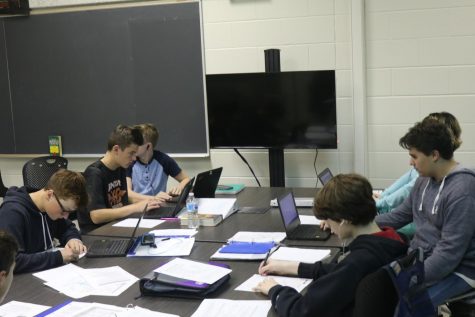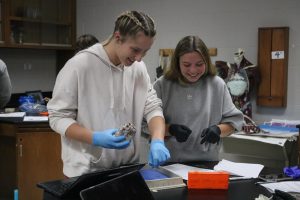Over involvement in course load and extracurricular activities can cause an equal amount of stress to student participants
October 16, 2017
One more club, one more sport, one more Advanced Placement class — one less hour of sleep. This kind of schedule has become a reality for some high schoolers, often resulting in students devoting excessive amounts of time to school. This is done in order achieve high caliber grades while staying involved in various extracurricular activities.
“There are nights when I get two to three hours of sleep,” senior Ariana Mansour said. “I am the 2018 President of the National Honor Society, drum major for the Marching Tigers and a part of the IB theatre program, all while being a full IB diploma candidate. Maintaining a schedule like mine requires a lot of discipline, along with pulling some all-night study sessions.”
Students attempting to maintain involvement in a variety of activities while juggling school work has proven to have a number of effects on their mental health. A study conducted by Dr. Noelle Leonard, a psychological researcher at New York University, found that American high school students are functioning at stress levels which parallel those of an adult with chronic stress disease.
The study surveyed students from 128 private schools along the east coast, with 49 percent of the high school students reported feeling abnormal amounts of stress in their daily lives.
“School, homework, extracurricular activities, sleep, repeat — that’s what it can be for some high-achieving students,” Leonard said in a press release regarding the study. “We are concerned that students who are involved in too many activities can get burned out before they reach college.”
While students may still attempt to fill their resumes with a variety of activities showcasing their widespread involvement in school and community life, it may prove to be in vain. Changing trends among college admission officers in what they look for when evaluating a student’s portfolio for admittance may prove to be the downfall of many candidates.
“Students have such a misconception in what they think colleges are looking for when it comes to extracurricular involvement,” college admissions adviser Sara Harberson said. “The ‘ideal’ student many have in mind is the person who is involved in a variety of sports, clubs and activities. Simply put, an overachiever. However, a jack of all trades is a master of none. Colleges don’t want to see students be mediocre at 10 different activities, but they do want to see someone who is great at just one or two things. By taking this approach, students show they’re involved and it can possibly alleviate the stress they feel.”’
Students are encouraged to find a few activities that they are passionate about and to take on an expanded role within those activities, and by doing so possibly reduce the stress they may feel in their daily lives. While admission to college is important, it is recommended that students do not sacrifice their mental and physical health for the sake of it.














Ombric • Apr 7, 2019 at 8:45 PM
“A jack of all trades is a master of none, but often still better than a master of one”